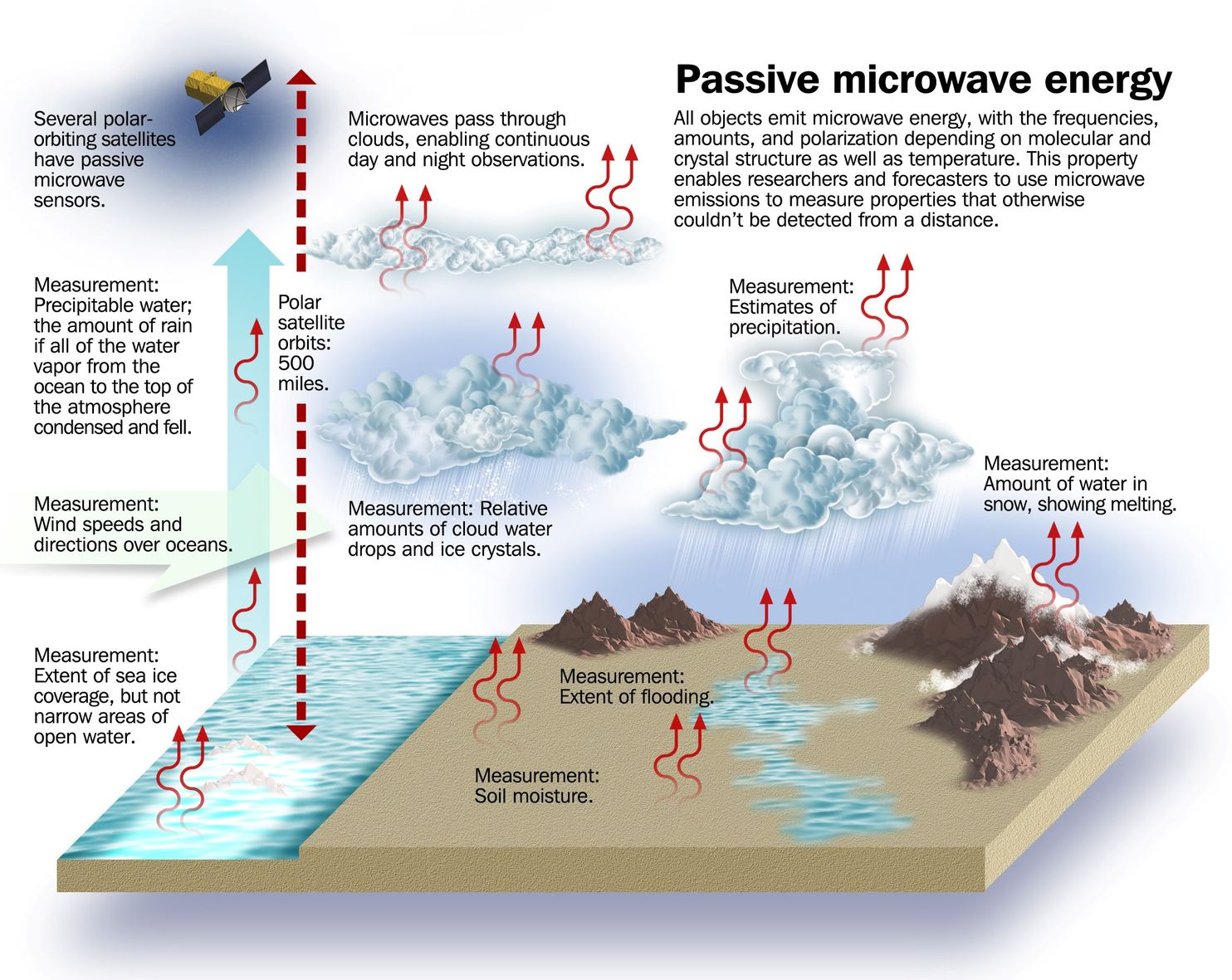The Federal Communications Commission has proposed policy that could jeopardize the collection of vital information for weather prediction, the heads of the Commerce Department and NASA say.
This data is disseminated across wireless radio frequencies known as “spectrum.” It enables transmission of information from satellites, weather balloons, ocean buoys, weather radars and other technologies that are used by government agencies and the private sector.
But some of this same spectrum is coveted by commercial wireless providers for their next-generation 5G networks. The federal government’s science-focused agencies and the FCC are battling over spectrum policy and its allocation.
The question in this dispute boils down to in essence: What’s the bigger priority — the 5G network for wireless providers or accurate weather forecasts?
In a letter to the FCC obtained by The Washington Post, dated Feb. 28, Commerce Secretary Wilbur Ross and NASA Administrator Jim Bridenstine urged the FCC to remove a policy paper on its website containing a proposal that “would have a significant negative impact on the transmission of critical Earth science data — an American taxpayer investment spanning decades and billions of dollars with data supporting public safety, natural disaster and weather forecasting."
The letter said the FCC posted the proposal when “there was no consensus in the interagency on this topic.”
It requested the FCC take down the proposal “immediately” ahead of a meeting Monday convened by NASA “to continue the long-standing interagency reconciliation process on this important topic.”
On Friday, the FCC replied to the letter and rejected the request. It said that it had already “engaged extensively” with Commerce, the National Oceanic and Atmospheric Administration and NASA, and that matters had been settled by the State Department, the appointed “arbiter.”
“Given the lack of respect for the Department of State’s decision and the deliberate and ongoing efforts to undermine the U.S. Government’s proposal both here and abroad, the FCC will respectfully decline the invitation to attend the March 11 meeting,” the FCC letter said.
Meanwhile, late next week, the FCC will begin auctioning off parts of the spectrum, which could impact NOAA satellite information and potentially interfere with data from microwave sensors that are critical for weather prediction models.
Jordan Gerth, a researcher at University of Wisconsin’s Cooperative Institute for Meteorological Satellite Studies, said that if this data were corrupted, it would harm the accuracy of weather models relied on by forecasters.
“Passive microwave observations from satellites drive three- to seven-day forecast skill,” he said.
Before any spectrum is made available to other users, “we need to really understand the degree of interference and what kind of forecast skill decrease those missing observations would lead to,” Gerth said.
An upcoming major meeting of the world’s spectrum regulators will occur this fall, and values for levels of interference allowed to protect these sensitive measurements are in contention among the 193 countries.
“It is crucial the allowable levels of interference are decided in a way that is informed by atmospheric science since the measurements are so crucial to sound weather predictions,” said Renee Leduc Clarke, founder of Narayan Strategy, a weather and climate policy consultancy based in Washington.
In recent years, concerns about interference with the spectrum required by various weather technologies have increased as wireless providers have pressured the FCC to open and share more radio frequencies for their services.
“The radio frequency spectrum is a limited resource and competition for it is intense and growing, particularly with the rapid expansion of wireless communication,” according to a memo from the American Meteorological Society policy program. “This competition puts weather, water, and climate related uses of the radio spectrum at risk. It will be extremely important for decision makers to understand and account for meteorological uses of radio spectrum that help meet basic human needs before reallocation decisions are made.”

No comments:
Post a Comment